

And So I Watch You From Afar (ASIWYFA), the four-piece instrumental band from Northern Ireland, are all set to destroy the stage at the Bacardi NH7 Weekender, NCR edition, having already played at the Bangalore version of the festival as well as at the Blue Frog, Mumbai as part of The Scene. The band blends a raw punk-rock energy with soulful instrumental passages and progressive and post-rock influences, and the guys are known to tear apart venues with considerable ease thanks to their phenomenal presence on stage, making a live show of theirs a real experience.
Karan Kumar, bass player for Mumbai/Pune's post-rock outfit, A Mutual Question, by day, also moonlights as a dedicated fan of the band. We got him to interview Rory Friers, ASIWYFA's guitar player, and you can read the interview in full below, as they talk about George Orwell, writing music in the rehearsal room versus writing in the studio, putting up performances that go beyond merely the music, experimenting with sound, constantly evolving, and more.
Karan Kumar: Lets start with your band name itself. There’s a certain dualism that I notice. I see a clear Orwellian reference but also a subliminal (or maybe not so much) stalker-esque undertone. What were you guys thinking when you chose this name?
Rory Friers: I guess we just wanted to have something which had a bit of ambiguity to it; that made people think, whenever they heard the name. That Orwellian vibe – the big brother state – is there. But we also like the idea of somebody looking at somebody else, like a guardian or something. We wanted to leave it open to interpretation and we were also hoping to have an interesting name!
KK: Most of your music has a lot of riff-oriented punk rock energy with minimal post-rock elements. Do you think a lot of instrumental bands today are being pigeonholed into the post-rock genre?
RF: Definitely. I think we generally try to avoid categorizing. It’s natural for people to want to do it. But, I think the problem with categorizing and giving a name to what you do – it’s not good or bad – it just sort of ends up limiting you in a way. It confines you to a certain sound, certainly in the eyes of other people; if we’re perceived as one thing, then it becomes difficult to get out of it. We always want change and progress.
I like to just think, there are only two genres, you know – good music and bad music.
KK: Your new album, All Hail Bright Futures, has considerably more effects, samples, collaborative vocal parts and elements of electronica. Not to mention it exudes a very happy vibe! Where are all these new inspirations coming from?
Has it been a conscious decision to move away from the old ASIWYFA sound? Where have the new inspirations come from?
RF: It’s definitely a conscious decision [to have a new sound on All Hail Bright Futures]. It’s not necessarily a move away from the old sound; we still love all those songs and that still represents a part of the band. But, for us, repetition is absolutely pointless and boring. It’s always a conscious decision to move forward and try new things.
The inspiration that we get, I guess, comes from the music we’re listening to, the travelling we’ve done, the people we’ve met, songs we’re hearing on the road. We wanted to make a record that was a bit brighter and just a bit more uplifting.
That’s not to say that that’s the band we want to sound like. We’re definitely believers that a record should sound like a record – like, a concise piece; and everything should fit together. Instead of being scared and incorporating some new ideas and going back to the old stuff, we believe that if you’re going to try something, you’ve got to see it right through till the end.

(Photo by Uday Shankera)
KK: Tell me about your song writing process. Do you guys come into the studio with pre-conceived ideas about what your music should sound like or is it more of an experimental process.
RF: It’s always experimental. The way the songs are being written – I’ll come up with a bunch of ideas, and once I have a lot of stuff pieced together, we’ll take it to the rehearsal room. The band will start piecing them together and see what works and all the guys would start adding their parts to it; we’ll try and arrange together a song. If we come back together the next day and play the song and it still sounds exciting, then we’ll know we’ve got potential for something that might make it to an album some day.
For the last album, we did it slightly differently. We came in with all these ideas, and instead of bringing them into the rehearsal room and working them into finished tunes and then recording, we brought all the ideas straight into the studio and we made the record into the studio. It was a great experience, and everyone was able to spread their wings a little bit. It was a really fun time and all of us were in the studio from nine in the morning to nine at night!
Watch And So I Watch You From Afar play 'S is for Salamander' below:
KK: All your live shows have an unbelievable amount of energy. What is your philosophy of playing on stage and performance?
RF: We like to make our shows exciting and unpredictable and different each time and into something that’ll engage the audience and the band together. It isn’t just about watching us playing our music – it’s more of a collaboration, a group experience. That’s what we’ve grown up listening and watching bands like At The Drive In, Jesus Lizard, Nirvana – the bands who made a live show something more than just you going to watch some guys playing their songs. It was exciting – sometimes scary, sometimes unpredictable. If you treat it like that, then that makes it fun. We love playing our music primarily, and it excites us to play it well. It’s sort of like a back and forward.
KK: You guys tour quite a lot. You just got done with a mammoth three-month Sargent House tour of the States. How does it feel, being on the road for so long? Do you guys ever land up composing while on tour?
RF: I always have my guitar in my hotel room – I’m always recording new ideas, new songs; whatever I write. Each city and place you’re in sort of sparks a new idea, or you get inspired by a band you’ve seen or a place you’ve travelled to. It’s kind of cool. On the road, yeah, we’re always writing.
You definitely have to have a certain personality, a certain character to survive and love being on the road. I think we’ve all got that. We’re always so grateful that we’re able to be in new cities, we’re meeting people who like our music, talking to them. At the end of the day, we get to play music which we really love. And then being home becomes even more special, we get to go home and meet our family.
KK: Can you tell us about one particularly memorable gig experience you guys have had?
RF: There was a show we played in a city called Samara in Russia, which was really as far into Russia as we’d ever been. We were one of the first bands from the west to play there, and it was minus 35 degrees in this old Soviet city. As we were entering the city, it was very dark, architecture all around. We looked everywhere and there was not a person in sight.
At the club, downstairs, we find the PA and a little bit of equipment, and the local music dudes and bands and kids had clubbed together. They crammed about 300 people in a 200-capacity room; the energy was just incredible and you could tell that it meant just too much for all the kids. It was just really special to meet all the people and talk to them after.
KK: You guys have now played two gigs in India, the Bacardi NH7 Weekender, Bangalore and a pub gig in Blue Frog, Mumbai. How was the response from the Indian audience to your music? Would you want to come back?
RF: Absolutely, yes. We want to come back, of course. We had a blast and the response been incredible. We had so many kids hanging out – in Bangalore, everybody stayed and watched the show even though there was a big storm. It was all very inspiring. After the shows, talking to the people and hearing about their lives and their music and the fact that they knew our music – it just blew our mind.
(This interview has been edited for length and clarity.)
Previous Article Introducing: The Quirky Sounds of Mumbai's Madboy/Mink Introducing: The Quirky Sounds of Mumbai's Madboy/Mink
|
Next Article A Peep Into the Mind of Blackstratblues A Peep Into the Mind of Blackstratblues
|
The Bacardi NH7 Weekender hit Greater Noida again this year for the NCR edition of the festival. Meshuggah, Nucleya, Mutemath, Scribe, And So I Watch You From Afar, the lineup had it all. The festival also had hot air balloons, gallons of alcohol, a Ferris Wheel, and so much more. Akhil Sood with the full report. Click here for stray observations from the festival.
There were a lot of little observations that needed to be made at the Bacardi NH7 Weekender, NCR, such as capes, Kailasa, Trilok Gurtu, wrist bands from hell, and lots more. So here they are in full technicolour. Click here to read our full review of the festival.
Minus its pedestrian name, The Scene – a series of monthly gigs organized by NH7 and Blue Frog – is a great initiative that not only helps young bands by putting them up on the big stage at the Blue Frog, Mumbai early in their lives as performing musicians, but also allows us wastrels and wanderers the opportunity to check out new music. V 6.0 featured three bands which had unusually long and weird names, so Akhil Sood, who calls himself quite the post-rock enthusiast, went to check out the gig. Here are his numbered thoughts:
AKHIL SOOD The instrumental post-apocalyptic postmodern audio experiment with the most pretentious name ever, Godspeed You!



_sq.jpg)
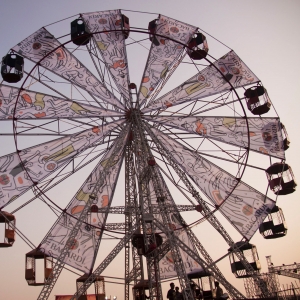
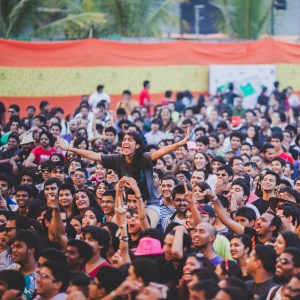
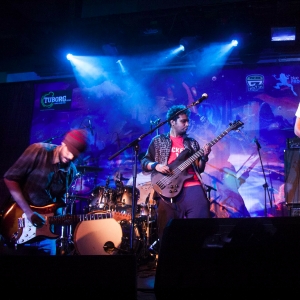

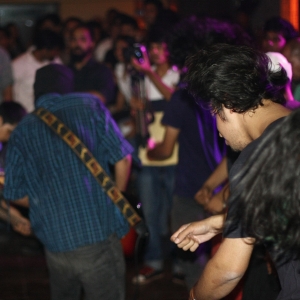
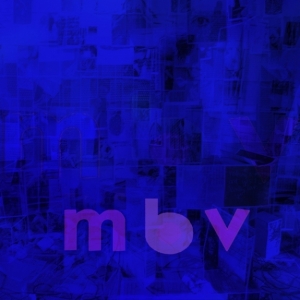

Leave a comment